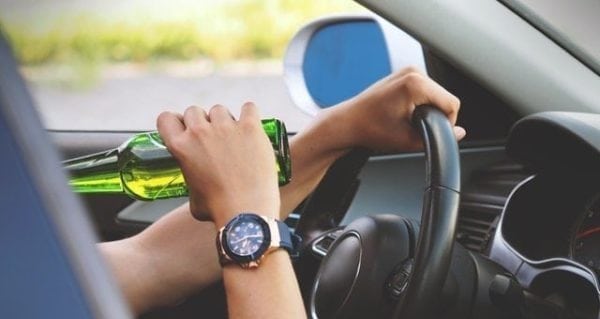 Marjory LeBreton, a former leader of the Conservatives in the Senate, has a family tragedy in her past: her daughter and grandson were killed by a drunk driver.
Marjory LeBreton, a former leader of the Conservatives in the Senate, has a family tragedy in her past: her daughter and grandson were killed by a drunk driver.
LeBreton is unhappy that her former Senate colleagues have voted to gut Bill C-46, which gives police the right to stop a vehicle and demand that the driver submit to a roadside breathalyzer test, without having to show reasonable grounds, as is now the case.
The Senate majority said this new power was an unreasonable extension of police powers in a democratic country.
Are they right?
It’s actually quite difficult for police to detect drunk drivers. Despite the fact that drunk driving takes many lives every year, detection rates are quite low. Unless a driver shows obvious signs of impairment, such as weaving from lane to lane, the police are powerless to stop drivers they know are probably impaired. As a result, there are a lot of drunk drivers on the road at any moment.
Even when police do find a driver who is probably impaired, the process to obtain a conviction and licence suspension is long and convoluted. Highly-skilled lawyers can often obtain an acquittal of a drunk driver, simply because a police officer failed to complete one of an almost impossibly long list of requirements necessary to get a conviction. A drunk driver with enough money to pay one of these defence lawyers who specialize in drunk driving cases has a good chance of beating the charge.
Bill C-46 would remedy this – at least in part. It would also bring us in line with other democratic countries that have far less of a problem with impaired driving than we do. In most of Western Europe, the police have long had the powers that C-46 would grant. Generally, they have much less of a problem with impaired drivers than we do because citizens simply don’t take the chance, especially when they know that there’s a very good possibility they will be caught.
Countries like Norway and Sweden are no less ‘free’ than is Canada, yet they have fewer drunks on the road because they have tougher drunk driving laws. In Canada, our weaker laws result in too many innocent lives being taken every year. Impaired driving is the leading criminal cause of death in Canada.
C-46 would also drastically reduce the huge numbers of drinking-and-driving-related trials. The technical defences that skilled lawyers have at their disposal in drinking and driving cases contribute to a serious court backlog in every province.
Backlogs and unnecessary trials waste a huge amount of police time, with officers often paid overtime in court waiting rooms. Extra court staff must also be hired to accommodate the clogged schedule. This includes more judges, each of whom costs taxpayers $1 million a year, in total. Each extra police officer, court clerk, sheriff’s officer, legal aid lawyer, judge, etc., who must be hired because of this waste results in the expense of even more support staff, office room, vehicle support, expense accounts, etc.
Court backlogs are incredibly expensive. C-46 can significantly reduce that waste.
Backlogs also compromise the quality of justices available for legitimate cases that must wait inordinate amounts of time for attention. C-46 would go a long way to making judges and court staff available to dispatch justice in a timely way. Justice delayed is justice denied.
But most of all, C-46 would make the roads safer for all of us. People tempted to drink and drive would not take the risk if they knew there was a very good chance they would be caught, with the financial penalties and loss of licence that would result from that bad decision.
And to the objection that this is an unwarranted intrusion of the state?
As a term of my driving licence, I must agree to wear corrective lenses. I don’t mind, as it’s obviously necessary for safety. I also don’t mind a police officer checking to make sure I’m doing so. Similarly, I agree that if I want to drive on public roads, I won’t do so with more than the allowed amount of alcohol in my system. It’s fine with me if a police officer checks to make sure I’m not in breach. This contributes to my safety and public safety in general. I think most people would agree.
Bill C-46 would contribute to public safety, help address the serious court backlog problem and save taxpayers a lot of money.
The Senate should step aside and let Parliament do its job.
Brian Giesbrecht is a retired judge and senior fellow with Frontier Centre for Public Policy.
The views, opinions and positions expressed by columnists and contributors are the author’s alone. They do not inherently or expressly reflect the views, opinions and/or positions of our publication.
This site is Powered by Troy Media Digital Solutions


